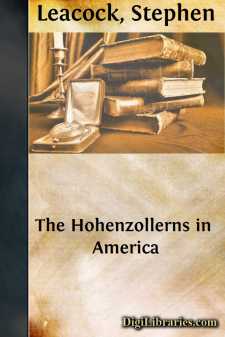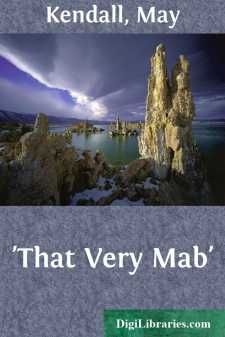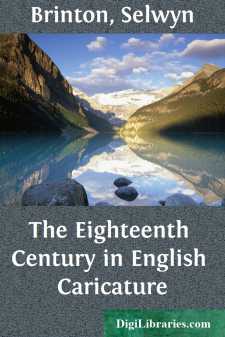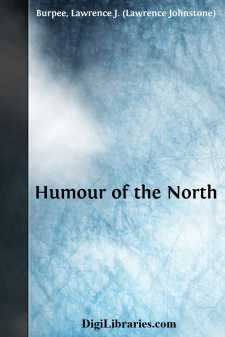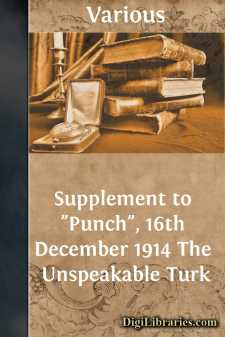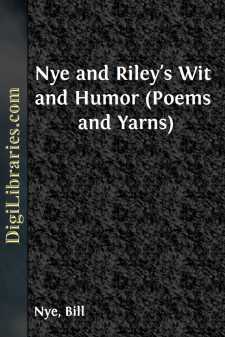Humor
- General
General Books
Sort by:
by:
Robert Seymour
SCENE I. "Walked twenty miles over night: up before peep o' day again got a capital place; fell fast asleep; tide rose up to my knees; my hat was changed, my pockets picked, and a fish ran away with my hook; dreamt of being on a Polar expedition and having my toes frozen." O! IZAAK WALTON!—Izaak Walton!—you have truly got me into a precious line, and I certainly deserve the rod for...
more...
by:
Stephen Leacock
II—HOW TO OPEN A CONVERSATION After the ceremony of introduction is completed the next thing to consider is the proper way to open a conversation. The beginning of conversation is really the hardest part. It is the social equivalent to "going over the top." It may best be studied in the setting and surroundings of the Evening Reception, where people stand upright and agonise, balancing a dish...
more...
by:
May Kendall
CHAPTER I. — UNDER TWO FLAGS. 'You send out teachers of religion to undermine and ruin thepeople.'—Black Flag Proclamation to the French, 1883. The moonlight, in wave on wave of silver, flooded all the Sacred Island. Far away and faint ran the line of the crests of Samoa, like the hills of heaven in the old ballad, or a scene in the Italian opera. Then came a voice from the Calling Place,...
more...
by:
Selwyn Brinton
INTRODUCTORY The word Caricature does not lend itself easily to precise definition. Etymologically it connects itself with the Italian caricare, to load or charge, thus corresponding precisely in derivation with its French equivalent Charge; and—save a yet earlier reference in Sir Thomas Browne—it first appears, as far as I am aware, in that phrase of No. 537 of the Spectator, "Those burlesque...
more...
HUMOUR OF THE NORTH THE BLUE NOSE Let the Student of Nature in rapture descant, On the Heaven's cerulean hue; Let the Lover indulge in poetical rant, When the eyes of his Mistress are blue. But fill high your glasses—fill, fill to the brim, I've a different toast to propose: While such eyes, and such skies, still are beaming for him, Here's a health to the jolly Blue Nose. Let the...
more...
Of the Rolling Stone Once upon a time in a small village in Bruce County, Province of Ontario, Dominion of Canada, there lived a man who was destined to establish a precedent. He was to prove to the world that a rolling stone is capable at times of gathering as much moss as a stationary one, and how it is possible for the rock with St. Vitus dance to become more coated than the one that is confined to...
more...
by:
Bill Nye
Biographical Edgar Wilson Nye was whole-souled, big-hearted and genial. Those who knew him lost sight of the humorist in the wholesome friend. He was born August 25, 1850, in Shirley, Piscataquis County, Maine. Poverty of resources drove the family to St. Croix Valley, Wisconsin, where they hoped to be able to live under conditions less severe. After receiving a meager schooling, he entered a...
more...
by:
Robert Seymour
On a grassy bank, beside a meandering stream, sat two gentlemen averaging forty years of age. The day was sultry, and, weary of casting their lines without effect, they had stuck their rods in the bank, and sought, in a well-filled basket of provisions and copious libations of bottled porter, to dissipate their disappointment. "Ain't this jolly? and don't you like a day's fishing,...
more...
INTRODUCTION This series of papers was begun in March, 1888. A single number was printed, when it was interrupted the course of events, and not resumed until nearly years later, in January, 1890. The plan of the series was not formed in my mind when I wrote the number. In returning to my task I found that my original plan had shaped itself in the underground laboratory of my thought so that some...
more...



